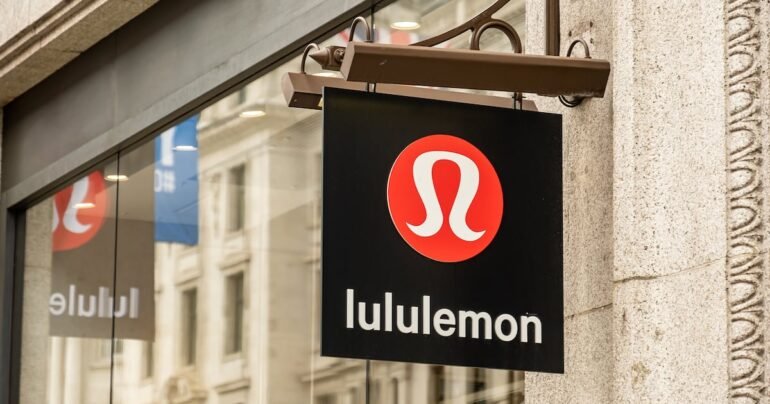
Lululemon Athletica Inc. was hit with at least seven analyst downgrades in a single day as analysts say the upscale clothing retailer needs a “strategic pivot.”
Shares hit their lowest level since the onset of the pandemic after the company slashed its outlook for both the third quarter and the full year, hurt by weak demand and a stricter trade regime under the Trump administration. The stock fell as much as 20 percent, touching the level it last traded in March 2020.
Analysts from Truist Securities, Evercore ISI, Telsey Advisory Group, Bank of America, Oppenheimer, William Blair and Stifel downgraded Lululemon’s stock on Friday, pushing the share of buy recommendations on the company to its lowest since 2014, according to data compiled by Bloomberg. William Blair analyst Sharon Zackfia downgraded the company to market perform, pointing to the “greater-than-expected” impacts from tariffs.
“As a result, we now essentially project Lululemon will lose a year of earnings,” Zackfia said on Friday.
TD Cowen analyst John Kernan said the company needs a “strategic pivot” as the firm enters a new phase. The team added that the de minimis exemption removal is structurally changing the margins going forward, which disappointed the team.
Stifel analyst Peter McGoldrick lowered the recommendation on the company to a hold from a buy, pointing to the underperformance within the casual clothing segment of the business in particular. That group contributes 40 percent to the revenue mix, “though reigniting brand momentum in the US is likely to take longer than we had previously anticipated.”
Evercore ISI analyst Michael Binetti also downgraded the firm to the equivalent of a hold from buy.
Even before Friday’s steep decline, Lululemon shares were down 46 percent this year, trailing way behind another Canadian retail company Aritzia Inc., whose Canada shares gained about 60 percent in the same time. The broader S&P 500 Consumer Discretionary Distribution & Retail index gained 8.9 percent.
By Stephanie Hughes
Learn more:
The Reign of Leggings Is Over. What’s Next?
After dominating wardrobes for more than a decade, leggings are no longer the go-to bottom for many younger consumers — even in the gym. Activewear brands are scrambling to adapt.
